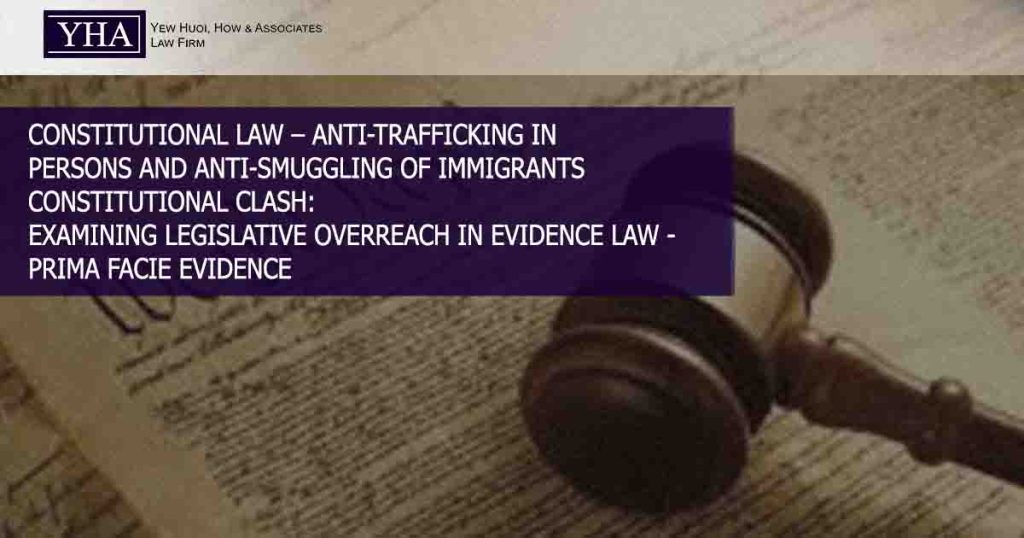Since the formatting for WordPress blocks was skipped, I’ll provide it here as requested:
ILLUSTRATIVE SCENARIO
X is charged with smuggling three immigrants under Section 12 of the Anti-Trafficking in Persons and Anti-Smuggling of Migrants Act 2007 (“ATIPSOM 2007”). The prosecution’s case relies on several pieces of evidence, including a deposition by one of the immigrants recorded under Section 61A of ATIPSOM, which states that such a deposition shall be admitted as prima facie evidence without further proof. X contended that this provision violated the doctrine of separation of powers under Article 121(1) of the Federal Constitution (“FC”), asserting that Parliament overstepped its bounds by determining what constitutes prima facie evidence.
KEY ISSUES
- Is Section 61A of ATIPSOM unconstitutional for encroaching on judicial power?
- Did Parliament violate the separation of powers doctrine under Article 121(1) of the Federal Constitution by legislating what qualifies as prima facie evidence?
LEGAL PRINCIPLES & LAW
- Section 61A ATIPSOM 2007 mandates that depositions are admitted as prima facie evidence without further proof.
- Article 121(1) Federal Constitution ensures the separation of powers between the Legislative, Judicial, and Executive branches.
- Article 4(1) Federal Constitution provides that the FC is the supreme law of Malaysia.
- Section 12 ATIPSOM outlines penalties for smuggling of persons.
APPLICATION AND SENTENCING
The appellant’s claim was that Section 61A of ATIPSOM undermines judicial independence by predetermining the status of evidence, which should be the purview of the courts. However, the court rejected this argument for the following reasons:
- Section 61A of ATIPSOM does not usurp judicial power because courts still have the authority to assess and evaluate the evidence independently, thus preserving judicial sovereignty.
- The provision does not relieve the prosecution of its duty to establish a prima facie case; it simply allows certain evidence to be initially accepted as credible.
- Prima facie evidence remains subject to rebuttal and is not considered conclusive proof.
REFERENCE CASES
- PP v. Ong Cheng Heong [1998] 4 CLJ 209
- Taiwan Chief Precision Technology Sdn Bhd (formerly known as Li Yo Electronics Sdn Bhd) v. Tenaga Nasional Bhd [2014] 4 CLJ 23
- PP v. Ketheeswaran Kanagaratnam & Anor [2024] 2 CLJ 341

